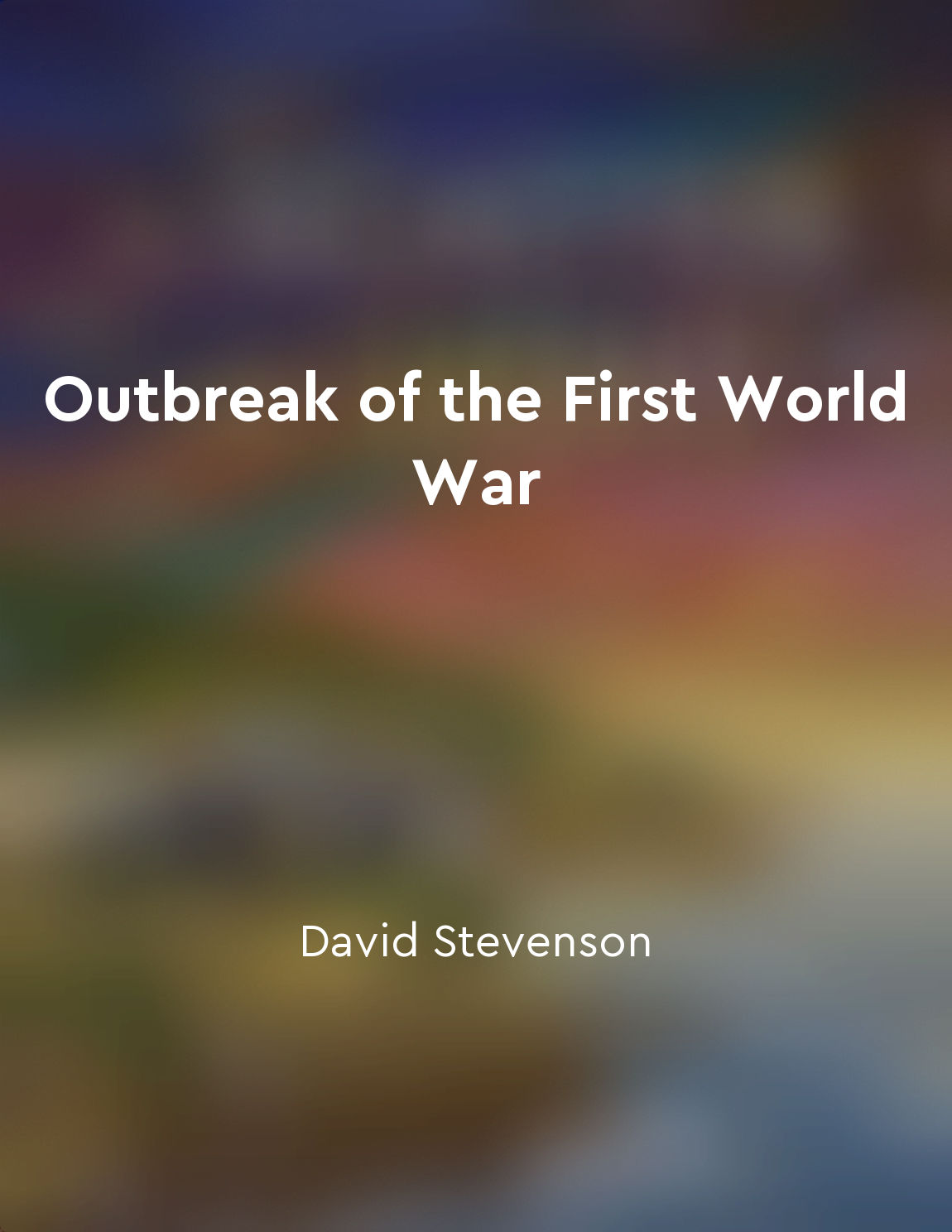Economic strains and shortages from "summary" of Outbreak of the First World War by David Stevenson
The economic strains and shortages that pervaded Europe in the years leading up to the First World War were a result of a combination of factors. Industrial production had been steadily increasing, leading to a rise in demand for raw materials and resources. However, this increased demand was not always met with a corresponding increase in supply, leading to shortages and price hikes. Furthermore, the competition for overseas markets and colonies among the European powers had intensified, leading to economic rivalries and trade disputes. This led to protectionist policies being implemented by various countries, further exacerbating the economic strains. The arms race that was taking place among the major powers also contributed to economic strains. Military spending was increasing rapidly, diverting resources away from other sectors of the economy. This further strained resources and exacerbated shortages. The interconnectedness of the European economies meant that any disruptions in one country could have far-reaching effects on others. For example, the Balkan Wars of 1912-1913 had disrupted trade routes and supply chains, leading to shortages in various goods and commodities across Europe. The looming threat of war also played a role in creating economic strains. Uncertainty about the future led to hoarding and stockpiling of goods, further exacerbating shortages. Countries began to prepare for the possibility of war by building up their military capacity, further straining their economies.- The economic strains and shortages that characterized Europe in the years leading up to the First World War were a result of a complex interplay of factors, including industrial expansion, competition for overseas markets, the arms race, and the looming threat of war. These strains would ultimately play a role in the outbreak of the war in 1914.
Similar Posts

Aggregate demand impacts business output
Aggregate demand is a critical concept that businesses need to understand in order to navigate the macroeconomic environment. P...
The war challenged existing power structures
The war was not just a military conflict; it was a clash of power structures, a challenge to the established hierarchy of natio...
Russian interference in foreign elections has caused concern
The idea that Russia has meddled in the elections of other countries has sparked anxiety and alarm among many nations. This int...
The Western Front became a stalemate of trench warfare
By the end of 1914, the war on the Western Front had settled into a grueling stalemate. Soldiers had dug themselves in, creatin...
Economic interests contribute to conflict escalation
One of the central arguments put forth in 'The Origins of the First World War' is the idea that economic interests played a sig...


